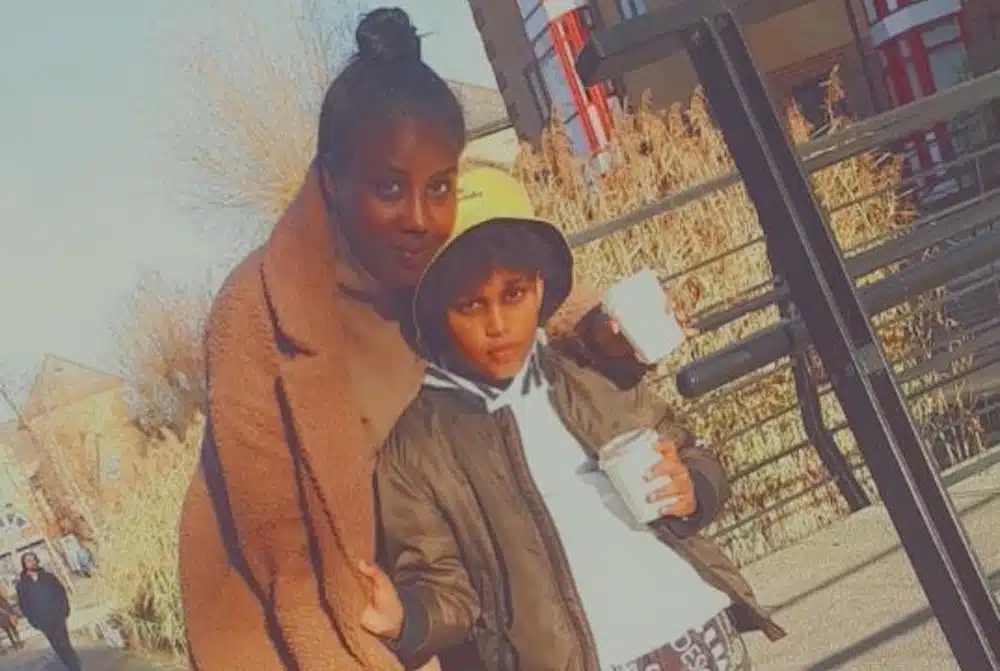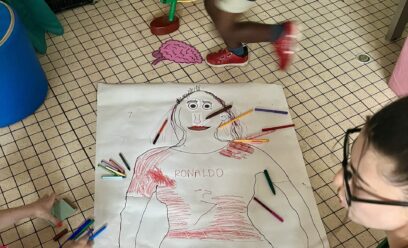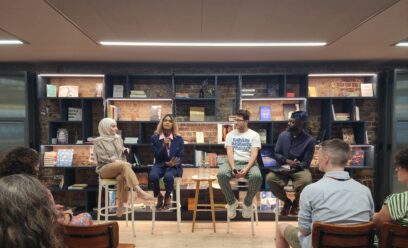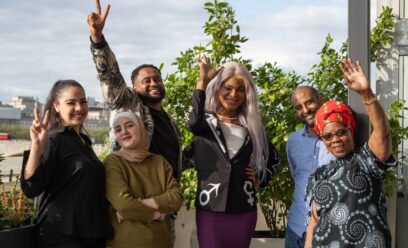‘Aged 14, I walked from Eritrea to Sudan. I was one of the lucky ones. I survived.’
Posted by Katherine Maxwell-Rose on January 21, 2021Nejat Salih fled Eritrea aged just 14, embarking on an extraordinary and difficult journey across northern Africa and Israel. She eventually arrived in the UK where her journey to find safety and a home continued.

I am from Eritrea. I left in 2009 when I was 14 years old. In Eritrea there is a dictatorship and at 18 years old, you have to serve in the army. Every young person knows how they will end up so has to leave the country. My mum and dad were both soldiers. My dad is still in the army. We lost my mum when I was aged 11 because she had an injury in her head. I didn’t want to end up like my mum dying in the army or my dad working all his life for nothing. My schoolmates and I decided to run away from Eritrea. We walked from Eritrea to Sudan. We were young. It is really dangerous. Now, I think how did I do it?
We ended up in Shagarab refugee camp in Sudan. There wasn’t anything to do there. I decided to go to Khartoum, like lots of others, so I could work. We paid some money to go in a private car. It was in the night – after two hours, the car stopped and there were people with their faces covered with big guns. They were smugglers. They put a gun to my head. I had to follow their instructions. The next thing we knew we were in the desert. Over 100 people in three Toyota vans. They put a cover over us so we looked like products not people.
They took us to Sinai in Eygpt. It took a month. At one point they put us in an empty water truck – they made us get in one by one. You couldn’t breathe. We lost two or three people in that truck on that day. They hid us as much as they could until we got to Sinai. They told us to call our families and said if you don’t pay for too long, they will sell you to another smuggler who will want more money. If you don’t have someone to pay for you, they will take your things and tell you, you will die. If you are a woman, they use you. I was one of the lucky ones. I survived.
After five months I managed to escape and went to Israel. I was there for almost six years as an asylum seeker but they couldn’t accept me as a refugee and life was very tough.
In Israel, there are people who don’t want to pay much money to those who work for them. They used to come, pick us up and pay a minimal amount. It’s what all Eritrean people have to do. As a woman you have to have a husband or boyfriend – otherwise you can’t survive. I was 17 when I got married to my husband and 20 when I had my baby. By the time I was 21, I was divorced.
I had been in Israel for five years and did not have any kind of papers. I wasn’t able to spend any time with my son. I was working 14 hours a day and my son was looked after by a babysitter who had 20, 30 children in one place. It wasn’t even legal but that was all there was. When my son started talking and walking, I only heard it from the babysitter. I was his mum in that I was providing for him but I could never give him the love I needed to give him. When I got there after work, he was already asleep.
My son was living the worst life – he didn’t have his mum around. I was thinking for the future – is it ok for me to be away from him for a couple of months and to provide for him a better life or for him to suffer for the rest of his life?
I realised that I didn’t have a choice about my own life but I could still change my son’s life. In order to do that I had to take a big decision which was leaving my son in Israel and making another journey. I left my son with his father. Every week a charity worker from an organisation supporting refugees where I had volunteered went to check on him. She made sure he was fine and sent me photos and videos of him. I hoped the separation would only be for few months.
I did a very dangerous journey back to Africa, into Europe and to the UK. There were two things I thought – either I am going to die or I am going to survive and make my life and my son’s life better.
Crossing the Mediterranean sea from Libya to Italy, it was life or death. 50/50. I was just praying. I had my son’s t-shirt with me; I just smelt that t-shirt and said ‘God if you are really with me you are going to make me survive this.’ I was lucky I survived.
In 2016 I made it to the UK, claimed asylum on arrival and was sent to a hostel in Liverpool. I had a really big depression. Being away from my son for one year and not knowing when I was going to see him or what would happen. I had this guilt inside – why did I make this decision? The worry I had. It was so hard. I wasn’t able to sleep. In 2017, I received my refugee status. I was really happy but really sad at the same time. Finally they had said, ‘You are a refugee. We accept you.’ But why was I happy? To be a refugee?
When I got my status, I moved to London. I was homeless for a couple of months and then managed to get a place in a small hostel. It was a really dodgy place. I used to have a mouse in my room. At first I was really scared of her but then she became my friend and I used to give her food.
I started working for a big beauty company in Bond Street. At the weekends I worked in a bar. I didn’t want to go back to the hostel. I hated it there. After working for a year at the beauty company – I was encouraged by the customers – they would call and ask specifically for me. That was the first time that I felt good – coming from all this journey.
Finally I went to Brixton, became self-employed and opened a small place with my friend. It’s called Mazal Beauty and Wellness. On my first year of opening my business I was ‘Top-rated’ on Treatwell. In Hebrew, Mazal means ‘Luck’. I feel very lucky to have survived all of this and be able to do this for myself and my son. I know people like me, my age, I know what happened to them when I was in Sinai and in Sudan. So I am very lucky.
I stayed in the hostel almost two years until my son came. I managed to do family reunion application for my son which took over a year but eventually we were reunited and he came here to live with me. Now I have a flat in south-east London one minute from the river. It’s something else. My son is doing really well, he is 8 years old and in year three at school. He is really happy now and so am I.
TERN supported me with my business. Doing any legal paperwork as a refugee is really difficult and TERN were really helpful with this. I feel like I belong when I go there. I see people like me when I go there. I have hope, I feel I am not alone.
Thinking of that journey, I feel really proud of myself. But I also feel really sad for me and for people like me and that we have to survive all this and still be judged or looked different at.
I wish I could go back home one day – to see the places where I used to play, the shopping areas I used to go to, see my old school. It’s really hard not to have friends from your home school or neighbourhood – you feel really isolated here. I wish I could go home and feel that feeling again, where you don’t have to explain anything.
What kept me going was that there was no choice. There was no other option for me. I had to keep going. If you are running towards a cliff and someone is holding a gun behind you, you have to jump off the cliff – and just hope there is water below you.





